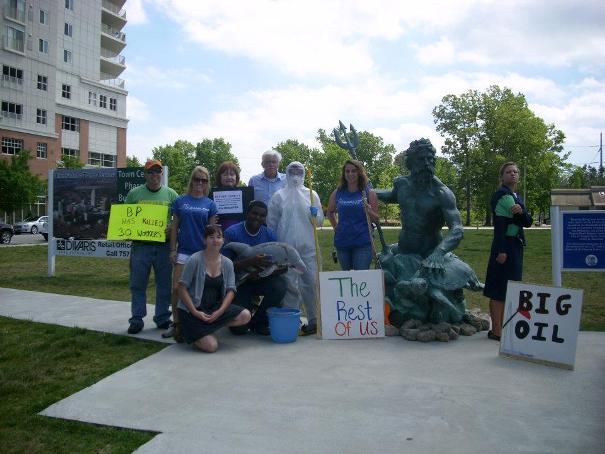-Crossposted at WeArePowershift.org
Students at the College of William and Mary assembled at a Bank of America location in Williamsburg, VA on May 1 to protest the bank’s funding of mountaintop removal. Alongside local activists, the students waved signs and chanted outside the building, while participants with Bank of America cards went inside to close their accounts. A couple members of the group simulateneously handed out fliers at nearby businesses. As the location was along a major thoroughfare, the protesters frequently heard supportive honks from passing cars and observed locals curiously reading their signs. After spending a couple hours spreading awareness, the activists dispersed, pleased with their work and eager to do more.




